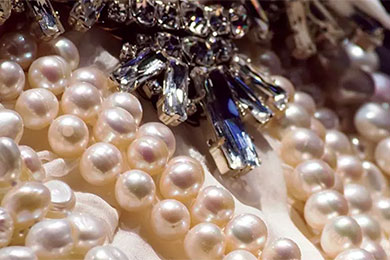- Businesses
- Individuals & Families
- Partnerships
- Brokers

Chubb Climate+ spans major industries, with a goal of enabling climate change progress in a meaningful way.


All Chubb policyholders are eligible for cyber services. Get the most value from your Chubb policy and schedule a consultation today.

In a complex world, Chubb’s support for multinationals and their brokers when choosing the right cover has never been more valuable.


As one of the world's largest providers of jewellery and fine art insurance, you can count on our unparalleled service and expertise, offering some of the broadest protection available.

As pioneers of using in-house appraisers to help clients establish the value of their property, and mitigate the risk of loss, our appraisal service is a key reason why owners of fine homes and high value possessions around the world choose Chubb

Build your business by providing the protection your customers need – it’s insurance for the new possible.

The seamless, secure, and scalable engine behind new possibilities for your company and customers.

-
About
About UsWho We AreFinancial & Regulation
- Claims
-
FCA Regulation
-
Contact
Chubb CareersComplaints
-
BackSuggested Searches
Sometimes a book is more than just a book. Sometimes it’s a rare and valuable collectible.
If you have a collectible book -or several- in your possession, you should care for and treat it like you would any valuable. In short, keep it safe, keep a record of it, keep its value up to date and keep it adequately insured.
Read on for our essential checklist for protecting valuable books.
Consider climate controls
To preserve the quality of your collectible books, consider installing climate controls in your home or library. Extreme temperature fluctuations and too much humidity can damage books, so be sure to store them away from air vents and in a stable environment.
Store them away from direct light
Too much light -natural or manmade- can cause the cover and print to fade, which can greatly affect value.
Store them separately
Rare books should not be handled frequently and should not be stored on a bookshelf with your other, non-collectible books, as they may be mistakenly removed. If possible, store the most fragile and valuable books in hermetically sealed cases or glass front cabinets, and protect individual books with acid proof jackets.
Maintain an inventory
Rare books should be carefully inventoried. Note the author, title, edition, condition, and any other pertinent information about the book. Take digital photos of the book and store back-up copies of the inventory along with invoices, appraisals, and any other provenance documentation.
Appraise them regularly
Just like with fine art and other collectibles, rare books should be appraised regularly. A good rule is to have new appraisals done every three to five years. This will be important if you have an insurable loss.
Consider valuables insurance
Finally, don’t assume your home insurance policy will provide sufficient coverage for a loss. Insure your rare books with a valuable articles policy that is structured to provide the best coverage for your fine art and collectibles.
For more information on Chubb in the UK click here.
All content in this material is for general information purposes only. It does not constitute personal advice or a recommendation to any individual or business of any product or service. Please refer to the policy documentation issued for full terms and conditions of coverage.
Insights and expertise




